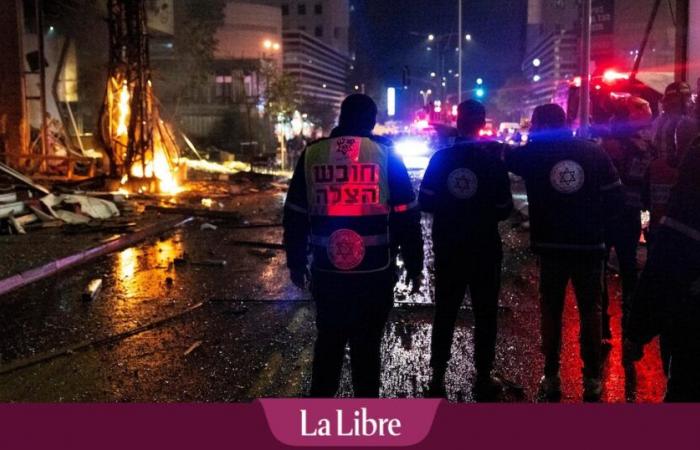
The street is partly cordoned off, and strips of tape prevent the many curious onlookers from getting too close to the site of the impact. The police are going back and forth within the secure perimeter to assess the damage. “Last time, I also went there, to see… It helps to realize the number of missiles arriving here. Monday evening, it was a projectile from Hezbollah, but what does that really change? No one died, we are protected by God”she believes.
With Donald Trump’s appointments, what are the prospects for American foreign policy in the Middle East?
On Monday, the Israeli army counted around a hundred projectile shots from Lebanon towards the north of the Hebrew state, the day after Israeli strikes in Beirut. These left at least ten dead, including the head of Hezbollah’s media office, Mohamed Afif. Here in Ramat Gan, the interception of one of the Shiite militia’s missiles at around 9 p.m. left five people injured, including a woman in serious condition, according to Magen David Adom, the local equivalent of the Red Cross. . Occurring in a neighborhood mainly occupied by offices, the attack did not affect residential areas. Malka, seeing the debris littering the ground on Ben Gurion Boulevard, still admits to feeling a certain anxiety.
A feeling shared by Yael, another resident of the neighborhood, who does not see the possibility of lasting peace for her country: “History works like a circle, especially here in Israel… I don’t think I will feel safe in the future, because this war may end thanks to negotiations with Lebanon, but then another one will begin. The more the story progresses, the more the conflict takes on a global dimension.she regrets. And added: “I don’t see any scenario in which Tel Aviv and the center would not be a target like the rest of the territory.”.
Negotiations on track
However, that same Monday, a five-page, thirteen-point plan had just been transmitted by the American administration with a view to a 60-day ceasefire in southern Lebanon, with the role of mediator between Israel and Hezbollah head of the Lebanese Parliament Nabih Berri. For the first time since the deadly attack of October 7, the Shiite movement agrees to negotiate a truce in Lebanon without putting Gaza in the balance. Despite this context favorable to a ceasefire, Kobi Michael, professor of military strategy at the Institute of National Security (Inss), predicts an Israeli response to the Ramat Gan attack. “It was not a simple rocket, but a ballistic missile which was intercepted in the middle of the city, he recalls. So I think that a response will be made to an important Hezbollah location in the Beirut area, Baalbek or in Syria.” For this Israeli specialist, the chances of reaching a ceasefire agreement have rarely been so high since the start of the war, but it is still weeks before its achievement.
Israelis accused of carrying out “ethnic cleansing” in the Gaza Strip
The objectives, however, seem clear: “If we come to this agreement, the main challenge for Israel would be to prevent any reconstitution of Hezbollah forces from the border to the Litani River (south), and beyond the river, it will be necessary to prevent a reconstitution of its political body in Lebanon“. In this sense, Kobi Michael approves the strategy of Benny Gantz, former commander of the Israeli army and main opponent of Benjamin Netanyahu. A few days earlier, he advocated before the Knesset the establishment of an Israeli zone of control in the south of Lebanon, based on the model at work in the West Bank.
In a video published Monday, Benny Gantz explained his strategy to bring an end to the violence in the north of the Jewish state. He then called on Israel to act in southern Lebanon.as in zone A“of the occupied West Bank, where the Palestinian Authority ensures all security and civil administration. Concretely, Israel would be duplicating a strategy already applied since 1967.”There would be no physical presence of the Israeli army on Lebanese lands, but from an intelligence point of view, control would be exercised by Israel to prevent a return of terrorist structures.“, details Kobi Michael. Before concluding: “Thus, at the slightest failure of Lebanon, the Lebanese army or the United Nations Interim Force in Lebanon (UNIFIL) to counter Hezbollah, Israel will enter the territory to do what is necessary..





